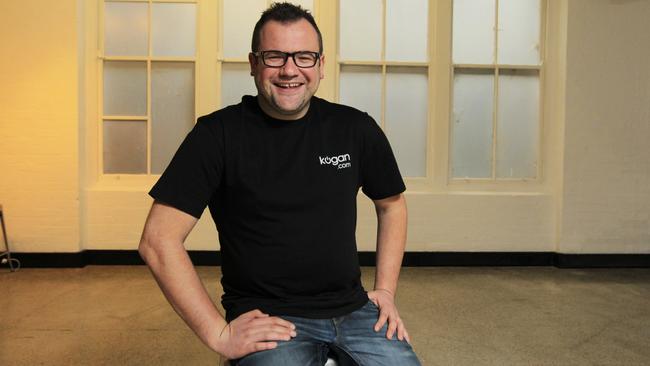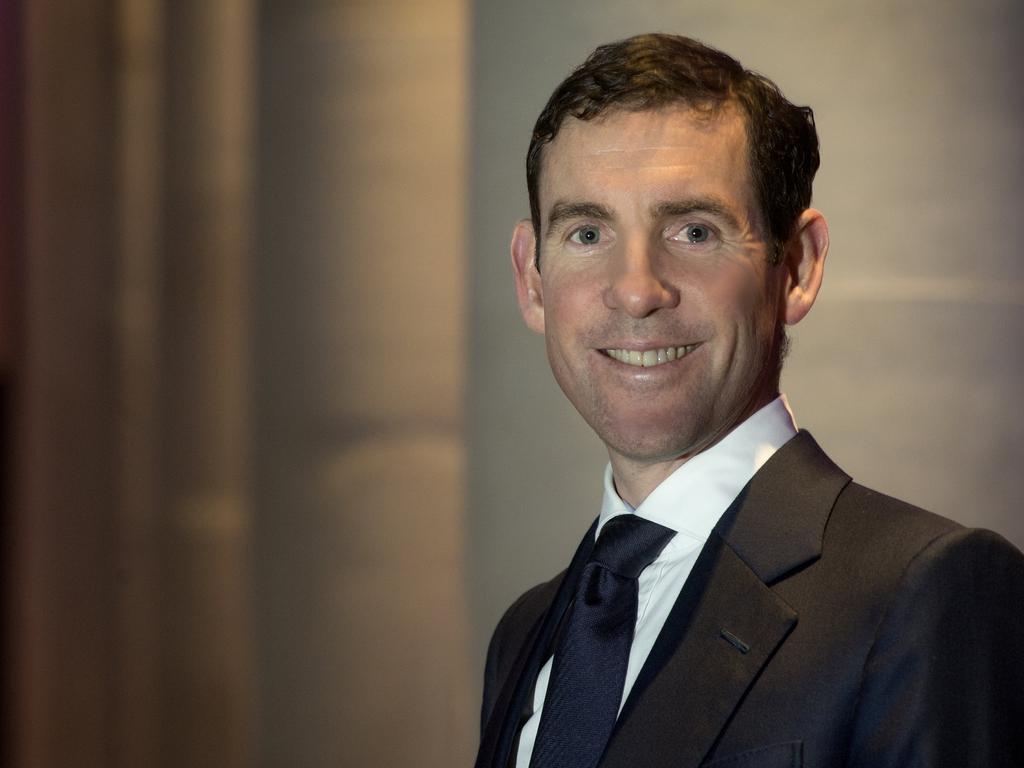
Retail lore says 60 per cent of the reason you go to one supermarket rather than another is convenience. To that add restrictions on travelling more than 5km in Melbourne, a boom in do-it-yourself hardware, strong liquor sales and home cooking being all the rage.
Coles is overrepresented in malls and IGA tends to be the corner local store, so Adams has managed to boost share in a time of booming supermarket sales when people are also treating themselves to better quality.
If the economy falters next year with the winding back of government support, continued high unemployment means value comes back. But it doesn’t get much better for a supermarket wholesaler, even if he has lost a couple of key customers along the way in Drakes and 7-Eleven.
The question then is how long does it last, and for Adams, a career retail executive, the revolution has arrived.
Maybe this time next year punters will be willing to go past the corner store again to venture back into shopping malls.
Woolworths for one has 8 per cent of its sales online against next to zero at IGA and 6 per cent for Coles.
Online shopping is understood within the group, with hardware store Mitre 10 claiming leadership in internet-based shopping.
Still, as things stand, if the online revolution has also set in that has to hurt Metcash going forward, for two reasons: it kills the local store advantage and IGA is coming from a negligible base.
But for a stock that has always attracted more than its share of shorts, the better than expected profit numbers meant the market saw nothing but blue sky.
On his third anniversary as boss Adams can revel in the fact his stock is selling at a 30-month high, up 8 per cent on Monday at $3.49 a share.
Thanks in part to April’s $330m equity raising at $2.80 a share, the retailer is now sitting on net cash of $172m, against $435.3m of debt five year ago.
For that new chief financial officer Alistair Bell can thank his predecessor Brad Soller for leaving the house in pristine condition.
Return on funds has more than doubled to 30.4 per cent over the same period.
A rising tide covers all skeletons, and Adams has managed to turn 9.5 per cent increases in sales to a 16.5 per cent increase in food earnings.
Liquor earnings increased 30.6 per cent on a 14.3 per cent increase in sales, and helped in part by a superbly timed $57m acquisition of Total Tools, hardware earnings were up 65 per cent on a 20 per cent increase in sales.
They are impressive numbers but as Microsoft’s Satya Nadella often says: “Today’s convenience is tomorrow’s friction.”
That’s what being a retail boss is all about.
Banks baulk at honesty
ACCC proposals to force banks to tell customers each year how much they are ripping them off would cost banks up to 7 per cent of 2022 financial year earnings, according to a Credit Suisse report.
The ACCC said existing home loan borrowers tended to be charged 58 basis points more than new customers and the banks should tell them of the differential.
It wants an annual statement telling punters how much they are being charged compared to other customers.
Credit Suisse analyst Jarrod Martin said if all the bank customers took up the suggestion, the cost to banks would range between $340m and $550m, with the big home lenders CBA and Westpac most affected.
Little wonder the banks were unimpressed.

A combination of lack of transparency and customer apathy is costing consumers big time, according to the ACCC.
In its report the ACCC said the new consumer data rights law helps overcome some problems because banks are required to release full details to customers who can then share them with potential competitors.
Long-term bank customers paying 58 basis points more than new home loan customers translates to $1400 in the first year of a $250,000 mortgage and $17,000 over the course of a loan.
To make matters easier, the ACCC figures the banks should be required to tell you every year how they are ripping you off.
The bank will tell you what rate you are paying and the average paid by other customers and what that is costing you.
Treasurer Josh Frydenberg has not yet decided what action, if any, to take on the ACCC’s report. The decision comes against a backdrop in which the banks are being seen to be key contributors to the revival of the economy post-COVID.
Frydenberg has recently dropped responsible lending rules in an attempt to free-up lending decisions.
Fair Work warning
The ACCC has issued its first public warning notice in three years against John Bingham and Unfair Dismissals Direct, which represents people before the Fair Work Commission on a no win, no fee basis.
In a statement it said: “From May 2018, the ACCC received complaints about Unfair Dismissals Direct, including from 18 consumers around Australia who complained that Unfair Dismissals Direct did not pay them their settlement monies, minus its fees, after their unfair dismissal claim was settled.”
It added it had reasonable grounds to believe the company had engaged in misleading and deceptive conduct.
The ACCC noted “individuals do not need to be represented at the Fair Work Commission, in fact almost half choose to represent themselves. Free and reliable information about the unfair dismissals process is available on the Fair Work Commission website”.
The rare public warning notices are used where people have suffered harm and the ACCC intervenes, avoiding potential lengthy court proceedings.
Separately, the ACCC had a mixed result from the Federal Court ruling in the Kogan case.
The court found Kogan had misled customers and fined it $350,000, which was less than the $2 million sought by the ACCC but more than the $150,000 penalty suggested by Kogan.
Justice Jennifer Davies said “the benefit to Kogan and the harm to consumers who purchased the affected products was modest, the harm caused to third party competitors was unlikely to be substantial”.
“Kogan did not deliberately intend to engage in the contravening conduct and the material does not indicate a culture of non-compliance or disregard of the law,” she added.
The ACCC said Kogan was offering discounts on products on which prices had just been increased.
Justice Davies said Kogan had taken “some corrective action”, adding “it cannot be said that Kogan has not acknowledged its contravening conduct or accepted the necessity to make changes to its advertising in order to remedy its contravening conduct and avoid a repetition of the conduct”.
The ACCC had said he had shown no contrition but this was rejected by the court.








If there was such a thing as a Metcash heaven then chief executive Jeff Adams is in it right now. But the question is, for how long?